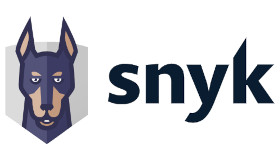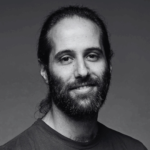Guy Podjarny, founder of Snyk, an innovative UK-headquartered technology company, offering a Developer security platform, began his cybersecurity journey in the Israeli army, later working in Canada and the UK. Snyk, with over a thousand global employees, started in London and Tel Aviv, expanding to the US and making acquisitions in Europe. Snyk’s dispersed, skills-based workforce operates remotely, emphasising flexibility. The company, initially struggling with revenue, achieved success by adapting its product to customer security needs. While facing challenges raising funds in the UK, Snyk eventually secured US-dominated funding. Guy’s strategic approach includes tapping into the US for experienced executives, addressing a perceived lack of UK growth stag talent. Snyk’s commitment to Open Source projects contributed to its success, showcasing responsible Open Source usage and fostering positive engagement within the development ecosystem.
Guy is the founder of Snyk, a technology company with a Unicorn valuation, offering a Developer security platform. He was born and raised in Israel, became involved in cybersecurity in the Israeli army after which he went on to a development job in an application security company in Israel. This company was then acquired by a Canadian company, so Guy relocated to Canada. After this company was then acquired by IBM, he resigned and founded a company in the DevOps space which was sold to Akamai. He then became CTO of Akamai, and move with the company to the UK in 2014. A year later, he left Akamai to found Snyk.
A Dispersed Skills-based Workforce
Snyk is a UK-headquartered company with over a thousand employees across the globe. It started with a presence in London and Tel Aviv, with teams scattered across these locations, and naturally expanded to the US. The US is Snyk’s primary business centre today due to the number of employees there. They’ve made numerous acquisitions in Europe and the US East Coast, and have European branches in Switzerland, Sweden, and Romania as well as other global offices in Sydney, Singapore and Tokyo. The UK remains their primary location where the R&D executives are based.
Like most Open Source businesses, the majority of Snyk employees work remotely with their offices being used as cultural or social centres. It offers a great deal of flexibility and doesn’t hire people based on location, but rather finds individuals and ecosystems across locations that have particular skills or advantages for the company.
In the UK, for instance, there is much better knowledge around user experience, developer community and community leadership as well as monitoring product methodologies, whilst Zurich has strong ties to ETH university, which built an AI-based programme analysis engine offering AI and problem-analysis expertise.
Snyk built a product-led company, modelled on developer tooling companies. Snyk’s initial product, which focused on Open Source security, is very successful; however, in the early days they were unsuccessful on the revenue generation front. Today, their platform builds on their Open Source security offering with further products focused on securing first party, container and infrastructure code as well as many other services in the broader platform.
Raising Outside of the UK
Initially, they raised a seed-round and then a seed-extension. After two years, generating revenue was tough, but they expanded their technology support, to understand and satisfy the needs of customer security teams so the curve started going up. From that point on, they started multiplying revenues by large amounts and growing the company as well as doubling down on employee hires which increased rapidly each year. Initial funding did not come from the UK as Guy was well connected to US investors who led the first seed round and he felt that UK investors seemed to be risk-averse.
After the company started growing they received the support of Accel in London which was the only UK-led funding round they had.
It would be unfair to say that there were challenges to raise in the UK – even though there was a clear reluctance to invest in the UK and the investors were too cautious even in the venture scene – as Snyk didn’t make a great deal of effort to raise investment in the UK.
After four years, Guy brought in a CEO to allow him to focus his time on product vision. He sees a lack of experienced growth stage executives in the UK as one of the biggest challenges to grow and build here. As a result, he tapped into the US for those people and skills and relocated a few US-based people to the UK.
Today, Guy sees a huge appetite for seed-stage investment and more high-risk investment in the UK, and believes that there is certainly no lack of funding. He sees UK tax incentives that are amazing and which help to secure the risk of investment9. For Guy, that came about 8 years later and Snyk’s A-round funding onwards is still US-dominated, but perhaps would not have been if that was available when he had started.
The Benefits of Open Source
By supporting Open Source projects and making its product free for Open Source maintainers10, Snyk effectively showcased its commitment to being a good Open Source community member. They help Open Source maintainers identify and fix vulnerabilities in their projects, creating a visible process through pull requests and emails. This approach and evangelism attracted developers to Snyk, who saw the secure practices implemented by Open Source projects.
Open Source played several crucial roles in Snyk’s success:
1. It served as a growth and distribution vehicle for the company, enabling the establishment of new best practices and adoption of Snyk’s products at scale;
2. Snyk’s initial offering focused on Open Source security, emphasising the importance of responsible Open Source usage within enterprises; and
3. By engaging with thriving developer communities centred around Open Source, Snyk adopted a positive brand image as a helpful and supportive member of the development ecosystem, encouraging more engagement with the company benefiting from its products.


